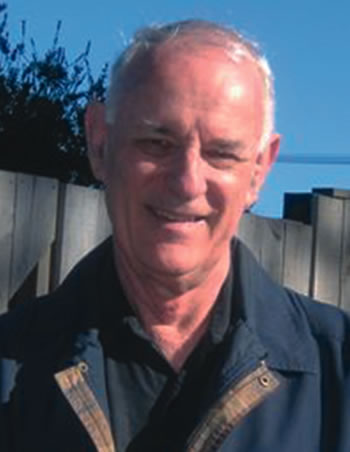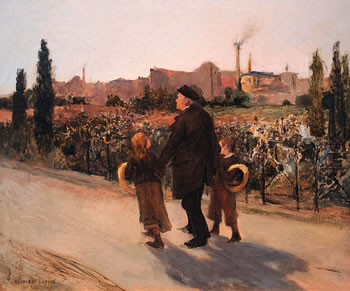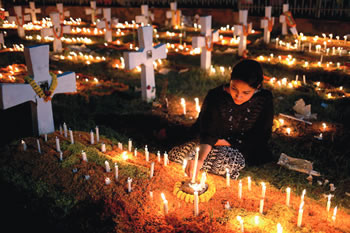Just a Thought – The Holy Souls and Purgatory

Fr Tom Ryan
November 2nd marks the Commemoration of the Faithful Departed or All Souls Day. With All Saints, we renew our faith in the ‘Communion of Saints,’ and our need to pray for one another.
With All Souls, the Church recalls another aspect of our participation in the ‘Communion of Saints.’ In recalling death and its aftermath, we recall that membership and solidarity in God’s family transcends the limits of time and space. Our minds turn to those who have gone before us and, in particular, to ponder the transforming effects of God’s love, as expressed in the mystery of Purgatory.

All Souls' Day,
Jules Bastien-Lepage, 1878
Paul assures us that our hope is not "deceptive," not an illusion or a fantasy. It comes from God, whose love is "poured into our hearts by the Holy Spirit." With and in Jesus, we can pray, plead, cry out "Abba, Father."
There is no limit to what God desires to share with us. If there are limits, they come from us and not from God. God meets us as we are, with our real, if, at times, residual sinfulness, resistances and fears. The door to our deepest self, the sanctuary of the heart, is opened by the key of desire, captured in the words of Catherine of Siena:
You have nothing infinite except your soul’s love and desire.
God draws us by the magnet of desire. Our capacity to know and love is like a flexible container. With God’s grace, it can be stretched without limit, so that, as Paul prays, we are filled with "the utter fullness of God."

Photo: Huffington Post
Through Purgatory, the Church expresses its deep instinct to understand the mystery of how divine love encounters our limited and frail humanity. Purgatory is not about punishment but, rather, encouragement. For many people, its presence is found in this life with diminishing health, increased dependence on others, a ‘letting go’ in surrender to life and to God. Perhaps, the scene that captures this is Jesus, in his death, saying "Father, into your hands I commit my spirit" (Luke 23:46).
Finally, it can well be seen as a transformation of desire. Here, another Catherine, this time from Genoa, sums it up:
I believe no happiness can be found worthy to be compared to the soul in Purgatory except that of the saints in Paradise. And, day by day, this happiness grows as God flows into these souls more and more, as the hindrance to his entrance is consumed. Sin’s rust is the hindrance, and the fire burns the rust away, so that more and more the soul opens itself up to the divine inflowing. As the rust lessens and the soul is opened up to the divine ray, happiness grows, until the time be accomplished, the one wanes and the other waxes . . . As for the will, never can the soul say these pains are pains, so contented are they with what God ordains with which, in pure charity, their will is united.
 Entries(RSS)
Entries(RSS)